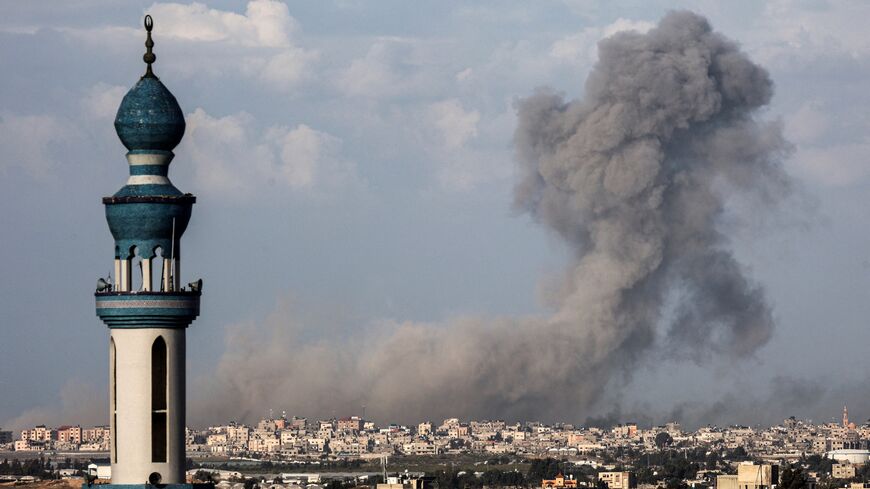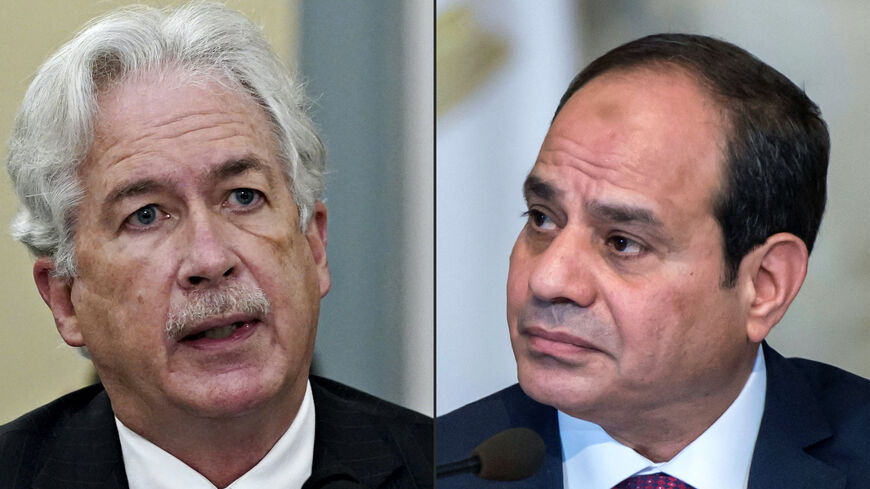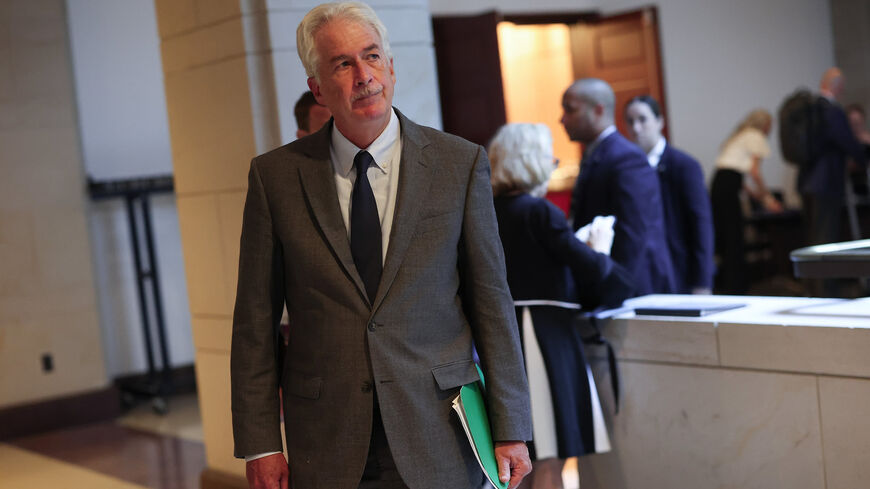Israeli delegation heads to Qatar to review Hamas' cease-fire proposal
Israel and Hamas have so far failed to agree on the terms of a cease-fire in Gaza that would include a prisoner swap.

The Palestinian group Hamas has put forward a new cease-fire proposal that involves the release of Israeli hostages in exchange for Palestinian prisoners in the latest sign of progress in the negotiations that have been stalled for days.
In a press statement released Thursday evening, Hamas said it submitted a comprehensive plan to mediators from Qatar, Egypt and the United States to “end the aggression against our people in Gaza, provide relief and aid to them, return the displaced to their places of residence, and withdraw the occupation forces from the Gaza Strip.”
The proposal is based on a “prisoner swap,” the statement read, adding, “The rights and concerns of our people shall remain our top priority.”
The proposal, which was seen by Reuters, includes the release of all women, including female soldiers, children, elderly and sick hostages in exchange for freeing 700 to 1,000 Palestinian prisoners held in Israeli jails, of whom 100 are serving life sentences.
Under the proposal, a date for a permanent cease-fire in Gaza and the withdrawal of Israeli forces will be set after the initial release of hostages and prisoners.
The remaining detainees from both sides would be released in a second stage of the plan.
Israel was quick to respond. A statement from Prime Minister Benjamin Netanyahu’s office said Hamas’ plan was based on “unrealistic demands.” The statement added that the war and security cabinets will discuss Hamas’ response later on Friday, while a senior Israeli delegation was headed to Doha on Saturday to discuss the outline of a possible deal.
Netanyahu’s remarks made a deal that would have brought some respite for Gazans less likely as the security and humanitarian situation in the Strip continues to deteriorate.
Qatar, Egypt and the United States have been engaged for weeks in intense shuttle diplomacy between Israel and Hamas in a bid to bridge their differences and reach a deal that would see a pause in the fighting and the release of the remaining hostages held in Gaza.
Israel rejected Hamas’ previous demands for an immediate and permanent cease-fire in Gaza and the complete withdrawal of Israeli forces from the territory, but Qatar has reportedly pressured Hamas to ease its demands. Last week, the Wall Street Journal, citing a Hamas official and Egyptian officials, said Qatar had threatened to expel senior Hamas officials based in Doha if they failed to secure a deal.
Egyptian President Abdel Fattah al-Sisi said Friday his country is deploying every effort to reach a cease-fire in Gaza and allow more aid to enter the enclave. Speaking during a ceremony at the police academy in Cairo, Sisi expressed hope that a deal will be announced “within the next few days.”
But Israel appears to be keeping its options open. On Friday, Netanyahu's office said that Israel is preparing to evacuate civilians from Rafah — where roughly 1.5 million displaced Gazans are sheltering — but did not elaborate on the plan. A statement from the Israeli prime minister reiterated his commitment to launching the operation, saying the military was “preparing for the operational aspects and for the evacuation of the population.”
The Israeli army has been conducting an intense air and ground campaign in the Gaza Strip since Hamas launched a cross-border assault in southern Israel on Oct. 7.
Hamas militants killed nearly 1,200 people and took more than 240 others hostage during the attack. The group has released a total of 110 hostages, and 240 Palestinian prisoners held in Israeli jails were freed during a brief seven-day truce late last November. Israel believes 136 hostages remain inside Gaza, including at least 32 who they believe have been killed since the offensive began.
Meanwhile, the death toll in the Gaza Strip has reached 31,490 Palestinians, mostly women and children, and over 73,439 have been injured, according to the Health Ministry in the enclave.
The war has also displaced nearly 1.7 million people, according to UN figures, and experts have warned of an imminent famine in Gaza.






